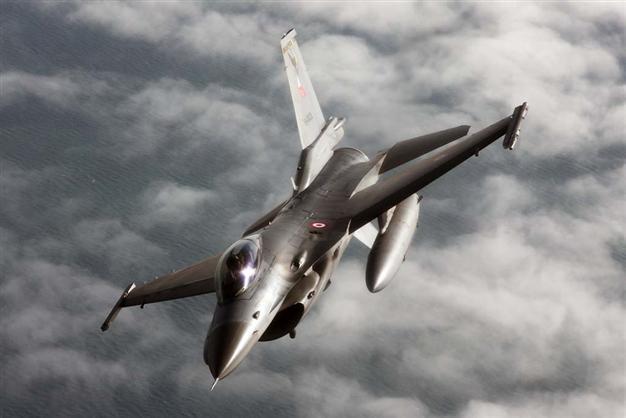Turkish exercise notice over Aegean Sea fuels tension with Greece
Yorgo Kirbaki ATHENS

An aviation notice issued by Turkey for a 10-month military drill in the Aegean Sea has sparked reaction from the Greek government, which reportedly complained about the move to international organizations over a “violation of Greek integrity and flight safety.”
Turkey issued A Notice to Airmen (NOTAM) on Feb. 27, reserving extensive airspace over the Aegean Sea for military use between March 2 and Dec. 31.
Athens became infuriated over the move, claiming that it would be against both Greek sovereignty rights and international laws, as the area cited by the Turkish army includes the airspace between the Greek islands of Skiros and Lemnos.
Greek media reported the government sent compliant letters to NATO, the European Union, the International Civil Aviation Organization (ICAO) and the United Nations over the weekend, denouncing the Turkish military’s plans.
The Greek Foreign Ministry also sent a cancellation NOTAM to the Turkish Foreign Ministry on the night of March 1, stating Ankara would be responsible for any accident that may occur in the region, local media also claimed.
The Aegean region has begun to face increasing tension between its neighbors, which have particularly escalated after the election of the new Syriza government in Greece in January.
Immediately after assuming the post, new Greek Defense Minister Panos Kammenos visited the disputed Aegean islets of Imia/Kardak with a military helicopter on Jan. 30.
Around 20 days after the move, the commander of the Turkish Air Force, Gen. Akın Öztürk, personally took part in a training mission, piloting an F-16 in a low-altitude flight over international waters near Greek islands in the Aegean Sea.
Dogfights occasionally occur between Turkish and Greek aircraft over the Aegean Sea, as the two countries are at odds over the boundaries of their airspace in the area due to a long-standing territorial dispute.
The number of such dogfights has increased recently, after a relative decline amid talks between Turkey and Greece to resolve their disagreements on the continental shelf over the Aegean.
 An aviation notice issued by Turkey for a 10-month military drill in the Aegean Sea has sparked reaction from the Greek government, which reportedly complained about the move to international organizations over a “violation of Greek integrity and flight safety.”
An aviation notice issued by Turkey for a 10-month military drill in the Aegean Sea has sparked reaction from the Greek government, which reportedly complained about the move to international organizations over a “violation of Greek integrity and flight safety.”